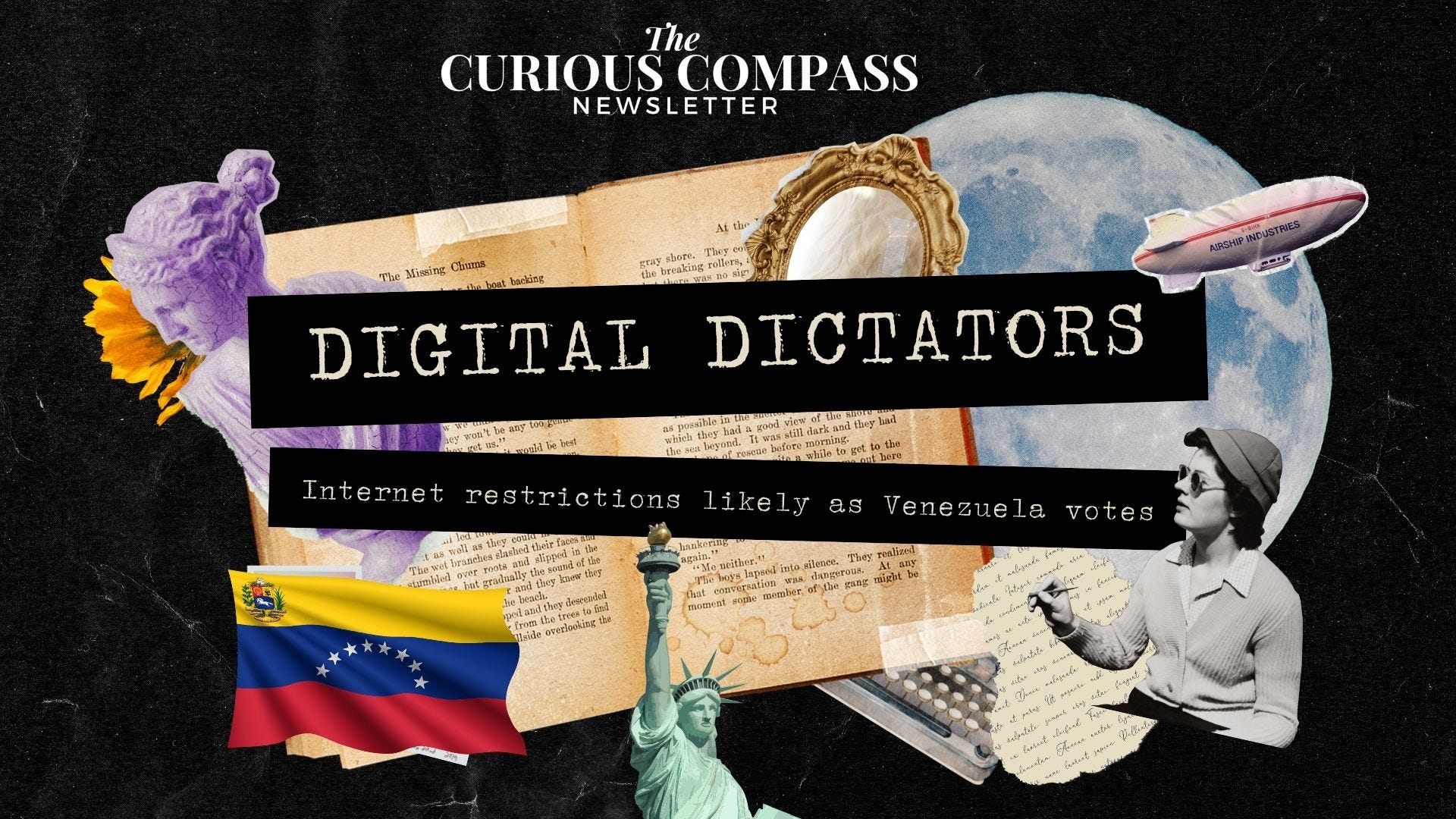Digital Dictators
Internet restrictions likely as Venezuela votes
The first half of 2024 has been characterized by widespread conflict, a unique confluence of elections, and the rise of 'digital authoritarianism', which is particularly concerning as Venezuela prepares for its presidential elections today.
Recent investigations have revealed that Kenya, El Salvador, and Comoros implemented internet shutdowns for the first time in their histories. In the first six months of 2024, nine countries imposed a total of 21 internet restrictions.
According to Surfshark's Internet Shutdown Tracker1, which has been monitoring government-imposed internet and social media restrictions since 2015, protests were the primary reason for these internet restrictions, accounting for ten instances. Elections led to four shutdowns, while seven were attributed to other forms of political instability, raising concerns about democratic regression.
Lina Survila, a Surfshark spokesperson, explained to Verdict that the restrictions in Comoros occurred during post-election protests, while in El Salvador, access to Telegram was limited on multiple internet providers during the presidential inauguration on June 1st.
The most recent case involved the Kenyan Government restricting internet access during large-scale protests against a controversial finance bill in late June.
Asia continues to be the region most affected by internet shutdowns. India, with the highest number of cases globally at seven, experienced most of its shutdowns during nationwide protests in February. Pakistan has also been significantly impacted.
Imposed President Maduro: a digital authoritarian?
Internet repression in El Salvador last month shares similarities with ongoing shutdowns in Venezuela, where presidential elections are scheduled for today, Sunday, July 28th.
The leaders of both countries embody the Latin American 'caudillo' (strongman) archetype. El Salvador's Nayib Bukele, who calls himself the 'world's coolest dictator', and Venezuela's Nicolás Maduro, who inherited Hugo Chávez's socialist autocracy, exemplify this leadership style.
Despite his autocratic tendencies, Bukele maintains high popularity ratings due to widespread support for his harsh anti-gang measures. Maduro, however, faces a more challenging situation. Trailing opposition candidate Edmundo González in recent polls, Maduro appears willing to use any means necessary to bolster his campaign, as evident from his own words "by hook or by crook."
A recent investigation by the International Consortium of Investigative Journalists into digital authoritarianism uncovered widespread use of AI-generated content, disinformation campaigns, and the blocking of over 100 websites, including more than 40 media outlets.
On July 4th, the official start of the presidential campaign, the Venezuelan government blocked two fact-checking websites. Andrés Azpúrua, leader of the digital rights organization Conexión Segura y Libre, reported that four additional news sites were blocked shortly after, along with VE sin Filtro, a site monitoring internet censorship.
According to Lina Survila from Surfshark, Venezuela leads the Americas in internet restrictions. The country experienced a two-hour shutdown after the presidential election primaries on October 23, 2023, and imposed 33 internet restrictions during the 2019 presidential crisis when opposition candidate Juan Guaidó attempted to overthrow Maduro.
Survila predicts that, given Venezuela's history, more internet restrictions are likely during today’s presidential election.
Harming their citizens and impeding economic development
It's worth noting that since 2014, more than 7.7 million people have left Venezuela, underscoring the country's ongoing crisis.






